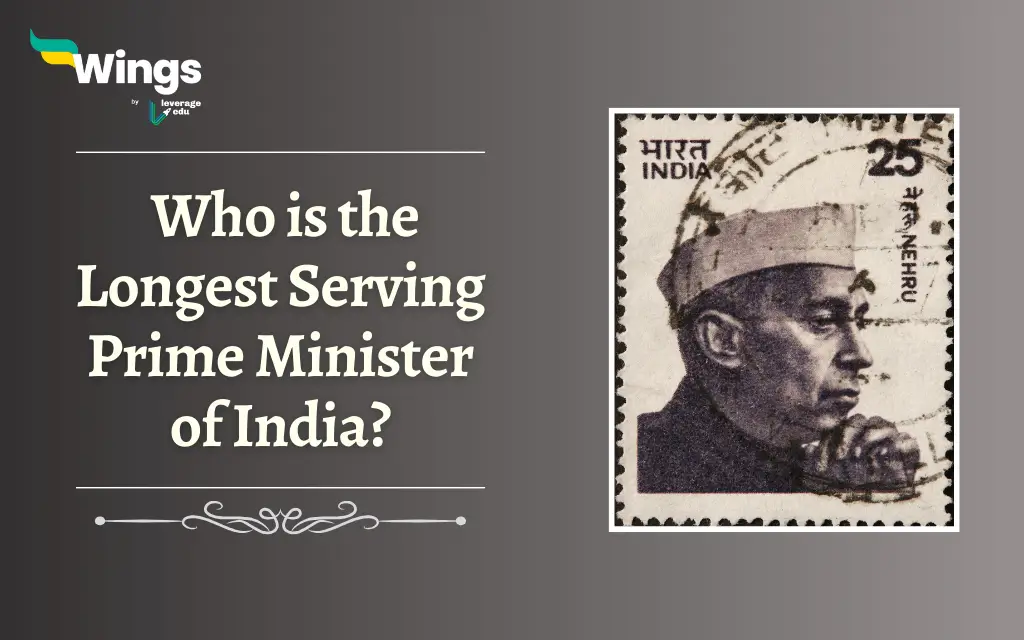The longest-serving Prime Minister of India is Jawaharlal Nehru from the INC. He was in the position for 16 years and 286 days from the 15th of August, 1947 till the 27th of May, 1964. Moreover, Nehru was the Prime Minister when George IV as well as Rajendra Prasad were the Head of State. Additionally, his leadership left an indelible mark on the nation, both politically and culturally since he also held other political positions during his time. This blog also includes more about Jawaharlal Nehru as well as the Achievements of the Longest Serving Prime Minister of India!
Who is Jawaharlal Nehru?
Jawaharlal Nehru was born on the 14th of November, 1889 in Allahabad, Uttar Pradesh. He was the son of Swarup Rani Nehru and Motilal Nehru.
- He was from a family deeply involved in the freedom struggle, with his father Motilal Nehru being a prominent leader.
- Young Jawaharlal was exposed to the zeal of the independence movement in his early years.
- Furthermore, he was educated at Harrow and Cambridge in England.
- Nehru returned to India and engrossed himself in the fight for independence.
- Additionally, he quickly rose through the ranks of the Indian National Congress, becoming one of its most influential leaders.
- Nehru’s vision for India was one of unity, progress, and social justice, all of which he advocated throughout his life.
Also Read: How is a Prime Minister Elected in India?
Achievements of the Longest Serving Prime Minister
Nehru, India’s longest-serving Prime Minister from 1947 to 1964, left a profound impact:
- Architect of Modern India: Shaped India as a sovereign, socialist, secular, and democratic republic, hence setting the tone for its political landscape.
- Industrialization and Infrastructure: Nehru led India into industrialization and built vital infrastructure, with institutions like the Planning Commission driving economic growth.
- Education and Science: Moreover, he established a vital education system and promoted scientific research. Therefore, founding prestigious institutions like IITs as well as ISRO.
- Foreign Policy: Pioneered non-alignment during the Cold War, founding the Non-Aligned Movement and placing India as a global leader.
- Legacy of Values: Nehru’s enduring commitment to democracy, secularism, and social justice remains an inspiration, thus encouraging unity among India’s diverse cultures and religions.
Related Blogs
| Why Do We Need Two Houses of Parliament? | What is Martial Law? |
| What is the Doctrine of Colourable Legislation? | What is the Difference between Martial Law and National Emergency? |
| What is the Difference between Fundamental Rights and Directive Principles? | What is the Difference Between Money Bill and Ordinary Bill? |
| What is the Difference between a Financial Bill and a Money Bill? | What is the Difference Between Fundamental Rights and Fundamental Duties? |
Lastly, we hope you liked our blog and gained an understanding of the First Woman Chief Minister of Delhi. Moreover, you may even read more blogs and empower yourself with knowledge regarding Civics and Polity!


 One app for all your study abroad needs
One app for all your study abroad needs












 60,000+ students trusted us with their dreams. Take the first step today!
60,000+ students trusted us with their dreams. Take the first step today!